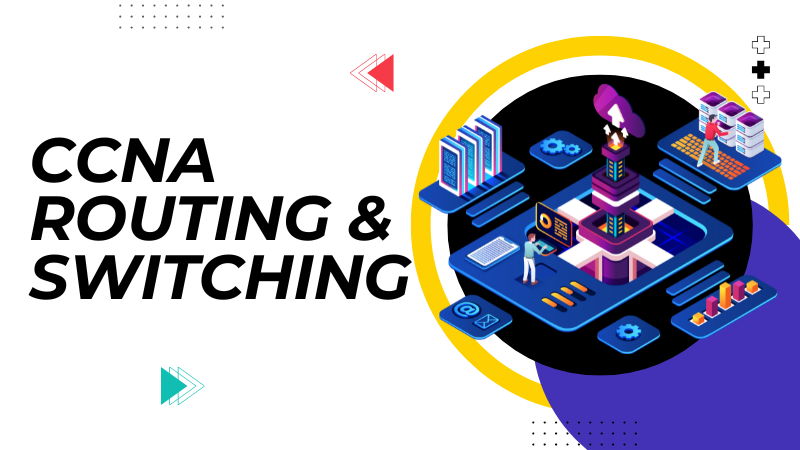
Course Content: CCNA Routing & Switching Networking Training in Jalandhar
Module 1: Introduction to Networking
- Overview of Networking Concepts
- OSI Model and TCP/IP Model
- Data Transmission and Encapsulation
- Networking Devices and Protocols
Module 2: Ethernet and LANs
- Ethernet Basics and Standards (e.g., 802.3)
- LAN Topologies (Bus, Star, Ring)
- Ethernet Frame Format
- Ethernet Cabling and Switching
Module 3: IP Addressing and Subnetting
- IPv4 Addressing and Classes
- Subnetting and Supernetting
- IPv6 Addressing
- Private vs. Public IP Addresses
Module 4: Routing and Router Configuration
- Introduction to Routing
- Routing Tables and Routing Protocols (e.g., RIP, OSPF)
- Static Routing vs. Dynamic Routing
- Router Configuration and CLI Basics
Module 5: Inter-VLAN Routing and Routing Protocols
- VLANs (Virtual LANs)
- Inter-VLAN Routing with Routers and Layer 3 Switches
- Routing Protocol Configuration and Troubleshooting
Module 6: Network Address Translation (NAT)
- NAT Basics and Types (Static, Dynamic, PAT)
- NAT Configuration and Troubleshooting
- IPv6 NAT
Module 7: Wireless LANs
- WLAN Basics and Components
- Wireless Standards (e.g., 802.11ac)
- Wireless Security (WPA, WPA2, WEP)
- Wireless Configuration and Troubleshooting
Module 8: Wide Area Networks (WANs)
- Introduction to WANs
- WAN Connection Types (e.g., Leased Lines, DSL, Cable)
- PPP (Point-to-Point Protocol)
- Frame Relay and VPNs (Virtual Private Networks)
Module 9: Network Security and Access Control
- Network Security Fundamentals
- ACLs (Access Control Lists)
- Port Security and DHCP Snooping
- Security Best Practices
Module 10: Network Troubleshooting and Management
- Troubleshooting Methodologies
- Common Network Issues and Solutions
- Network Monitoring and Management Tools
- Device Management and Configuration Backups
Module 11: Introduction to IPv6
- IPv6 Basics and Addressing
- IPv6 Configuration and Transition Mechanisms
- IPv6 Routing Protocols
Module 12: Network Services and Automation
- Introduction to Network Services (e.g., DNS, DHCP)
- Network Automation and Scripting (e.g., Python)
- Cloud and Virtualization Concepts
Module 13: Final Exam Preparation
- Review of Key Concepts
- Practice Exams and Questions
- Exam Taking Strategies
Module 14: CCNA Exam Review and Certification
- CCNA Exam Overview
- Exam Registration and Logistics
- CCNA Certification Paths
- Career Opportunities in Networking

CCNA Routing & Switching Networking Training Certification
Earn your certificate
Your certificate and skills are vital to the extent of jump-starting your career and giving you a chance to compete in a global space.
Share your achievement
Talk about it on Linkedin, Twitter, Facebook, boost your resume or frame it- tell your friend and colleagues about it.
CCNA Routing & Switching Networking Course Fee and Duration in Jalandhar
| Track | Regular Track | Weekend Track | Fast Track |
|---|---|---|---|
| Course Duration | 45 – 60 Days | 8 Weekends | 5 Days |
| Hours | 2 hours a day | 3 hours a day | 6+ hours a day |
| Training Mode | Live Classroom | Live Classroom | Live Classroom |
- Network Administrator
- Network Engineer
- System Administrator
- Network Analyst
- IT Support Specialist
- Network Security Specialist
- Wireless Communication Engineer
- Telecommunications Engineer
- IT Consultant
- Data Center Technician
- Cloud Support Engineer
- VoIP Engineer
- Network Instructor/Trainer
- Pre-Sales Engineer
- Network Project Manager
- Cisco Systems
- Amazon (AWS)
- Microsoft
- IBM
- AT&T
- Verizon
- Accenture
- Deloitte
- Oracle
- Hewlett Packard Enterprise (HPE)
- Cisco Partners (System Integrators, Service Providers)
A high school diploma or equivalent is typically required for the CCNA Routing & Switching Networking Course in Jalandhar. This course benefits aspiring network professionals, IT technicians, and individuals seeking expertise in routing and switching technologies. It provides essential knowledge and skills for configuring, managing, and troubleshooting networks, preparing participants for the Cisco Certified Network Associate (CCNA) certification and enhancing their career prospects in the field of networking.










